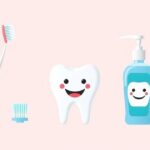Are you curious about the best minerals for strong teeth and healthy gums? Taking care of your mouth is more than just brushing daily; it involves understanding the vital nutrients that contribute to your overall oral health. Many women over 30 may experience challenges like sensitivity or gum issues, which can be frustrating. But by focusing on powerful minerals, you can regain confidence and improve your smile. Let’s explore how these nutrients help and what you can do to strengthen your teeth and support your gums.
Understanding the Role of Minerals in Oral Health
Minerals are fundamental to keeping our bodies healthy, and oral health is no exception. They help strengthen tooth enamel, support gum health, and prevent tooth decay. Many of us often overlook the importance of these essential nutrients in our diets.
Just like our bodies need calcium to build strong bones, our teeth require minerals to maintain their strength and structure. Inadequate mineral intake can lead to various dental issues, such as weakened enamel and gum disease. With the right intake of minerals, we can unlock vitality and enhance not just our oral health but our overall well-being.
Calcium: The Backbone of Strong Teeth
Calcium is one of the most essential minerals for strong teeth. Found in dairy products, leafy greens, and fortified plant-based milks, calcium plays a crucial role in forming and maintaining tooth structure. Strong teeth require sufficient calcium to support the enamel, the protective outer layer.
When you don’t consume enough calcium, your body can start leaching it from your bones or teeth, which can lead to issues such as osteoporosis or dental issues. Aim for about 1,000 mg of calcium daily to keep your teeth and bones strong. This is especially important for women over 30 as hormonal changes can affect calcium absorption.
Phosphorus: Partnering with Calcium for Dental Strength
Phosphorus is another critical mineral that works hand-in-hand with calcium. Found in foods like meat, fish, eggs, nuts, and dairy, phosphorus not only helps with bone formation but is crucial for keeping teeth strong.
Maintaining the right balance between calcium and phosphorus is essential for optimal dental health. If your diet is low in phosphorus, it can hinder the effectiveness of calcium. Ensure you have a rich and balanced diet to support both of these vital minerals.
Vitamin D: The Sunshine Nutrient for Better Absorption
While not a mineral, vitamin D is essential for calcium absorption. Without enough vitamin D, all the calcium you consume won’t be utilized effectively by your body. This vitamin is naturally synthesized by getting sunlight on your skin.
Include foods like fatty fish, egg yolks, and fortified products in your diet to boost vitamin D levels. Women over 30 often need to monitor their vitamin D intake, especially if they have limited sun exposure. Aim for around 600 IU daily.
Magnesium: Its Impact on Gum Health
Magnesium plays a vital role in dental health, particularly for our gums. This mineral helps in the formation of tooth enamel and is essential for healthy bone structure.
Magnesium also supports the body’s inflammatory response, helping the gums fight off infections. Foods rich in magnesium include nuts, whole grains, green leafy vegetables, and legumes. It’s important to aim for about 310-320 mg of magnesium daily, especially as we age.
Zinc: A Protector Against Oral Infections
Zinc is known for its immune-boosting properties, and it also plays a significant role in maintaining oral health. It helps to prevent plaque buildup and fights against bacterial infections in the mouth.
Found in foods such as meat, shellfish, legumes, nuts, and dairy, zinc is an essential component for tissue growth and repair, making it crucial for gum health. Strive for a daily intake of around 8-11 mg depending on your age and sex.
Vitamin C: The Key to Healthy Gums
No discussion of oral health is complete without mentioning vitamin C. This vitamin is vital for the health of your gums and can help prevent gum disease. It aids in collagen production, which is necessary for maintaining gum tissue.
A diet rich in fruits and vegetables, particularly citrus fruits, strawberries, bell peppers, and greens, provides a good supply of vitamin C. Older women should aim for around 75-90 mg daily to ensure their gums stay healthy and resilient.
Fluoride: The Shield Against Cavities
Fluoride is often added to water and toothpaste because of its tooth-strengthening properties. It can help rebuild weakened enamel and reverse early signs of tooth decay.
While we can obtain fluoride through drinking water, it’s also important to use fluoride toothpaste. Aim to brush your teeth at least twice a day with a fluoride toothpaste to protect your teeth effectively.
Iron: Boosting Blood Flow for Healthier Gums
Iron is essential for overall health and plays a role in maintaining healthy gums by boosting blood circulation. Its deficiency can lead to anemia, negatively affecting the health of your gums.
Incorporate iron-rich foods like red meat, beans, lentils, and fortified cereals into your diet. Approximately 18 mg of iron is recommended daily for women, especially as hormonal changes can impact levels.
Integrating Minerals into Your Daily Routine
Incorporating these essential minerals into your daily routine doesn’t have to be overwhelming. Start by reassessing your diet and finding foods rich in these nutrients. Here are some simple tips:
- Snacks that Nourish: Choose nuts and seeds as a healthy snack option.
- Bountiful Breakfasts: Start your day with a smoothie packed with spinach, banana, and yogurt.
- Mindful Meal Planning: Plan meals that include fish, greens, and whole grains for balanced nutrition.
- Supplement Wisely: If you struggle to get enough vitamins and minerals from food, consider supplements after consulting a healthcare professional.
- Stay Hydrated: Drink water, especially fluoridated water, to support your oral health.
It takes patience and commitment to change your dietary habits, but many women are discovering the benefits of a mineral-rich diet. You, too, can improve your dental health by taking small, consistent steps towards better nutrition.






